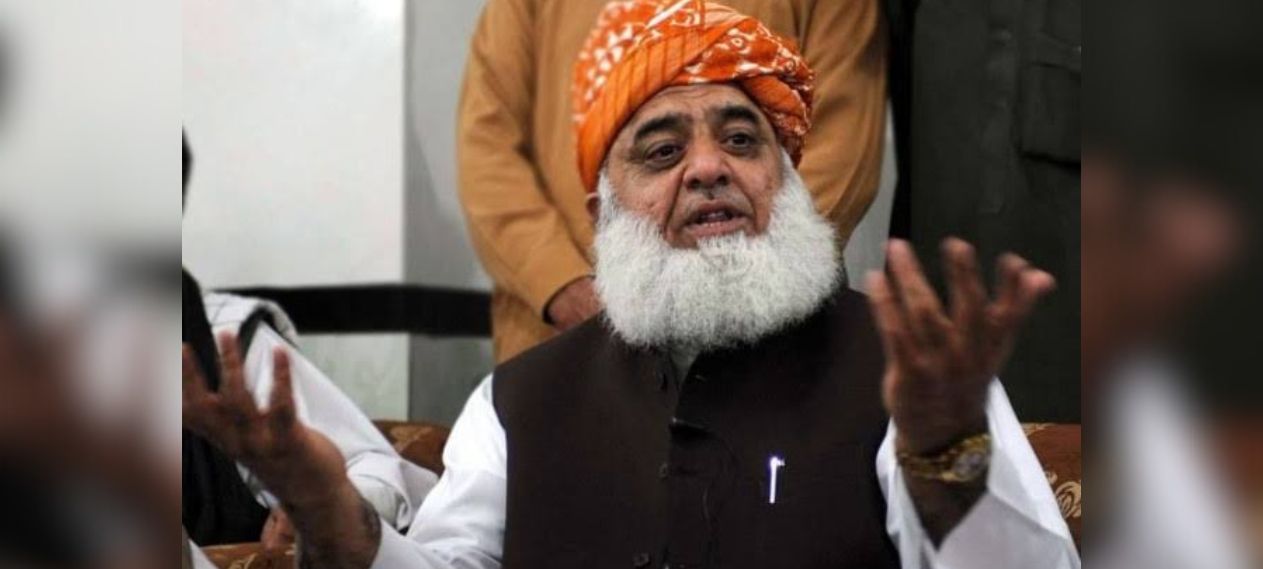Jamiat Ulema-i-Islam-Fazl (JUI-F) chief Maulana Fazlur Rehman stirred controversy on Thursday by alleging that former army chief Gen Qamar Javed Bajwa and ex-spymaster Lt Gen Faiz Hameed were involved in guiding political parties during the no-confidence vote against former Prime Minister Imran Khan and his government.
Historic Ouster Through No-Confidence Vote
In April 2022, Pakistan experienced an unprecedented event in its political history with the ouster of a sitting prime minister through a parliamentary no-confidence vote. The efforts leading to the removal of the PTI founder were spearheaded by the opposition at that time.
اگر میں عدم اعتماد سے انکار کرتا تو کہا جاتا کہ مولانا نے بانی پی ٹی آئی کو بچایا، عدم اعتماد سے متعلق جنرل (ر) فیض اور جرنل(ر)قمرجاویدباجوہ ہمارے ساتھ رابطے میں تھے، مولانا فضل الرحمن @MoulanaOfficial #NadeemMalikLive #Pakistan #SamaaTv pic.twitter.com/64XM9o9bga
— Nadeem Malik 🇵🇰 (@nadeemmalik) February 15, 2024
The Pakistan Tehreek-e-Insaf (PTI), in response, accused the country’s ruling elite of colluding with the United States in orchestrating a regime change to topple Imran Khan’s government. They particularly pointed fingers at the military leadership, then under retired Gen Bajwa, for allegedly permitting such conspiracies. However, the US denied any involvement in Pakistani domestic affairs.
Revelations in a Tell-All Interview
During an interview on Samaa TV’s ‘Nadeem Malik Live’, Maulana Fazlur Rehman revealed startling details about the events surrounding the no-confidence vote. He claimed that both Gen Bajwa and Gen Faiz were in contact with various political parties, providing guidance on how to proceed with the motion.
آج ثابت ہو گیا کہ عمران خان کی حکومت گرانے کی سازش کے پیچھے #وہ_غدار_باجوہ_تھا pic.twitter.com/K76cMOlJOt
— PTI (@PTIofficial) February 15, 2024
Rehman acknowledged that while he initially opposed the no-confidence move, he eventually acquiesced to the pressure from other parties involved, particularly the Pakistan Peoples Party (PPP) which was leading the charge.
Allegations of Direct Involvement
The JUI-F chief alleged that Gen Faiz directly approached him, urging him to proceed with the no-confidence vote, albeit within the confines of the political system. Rehman claimed to have refused this suggestion initially but changed his stance later due to pressure from other parties.
A confession that has vindicated Imran Khan's stance.
Maulana Fazlur Rehman, who was President of the PDM, has confessed that it was then Chief of Army Staff Qamar Javed Bajwa who asked them to remove Imran Khan in a no confidence motion. "It was General Bajwa who told everyone… pic.twitter.com/2K9OYdqbqH
— PTI USA Official (@PTIOfficialUSA) February 15, 2024
Clarification on Political Alliances
Responding to queries about the Pakistan Democratic Movement (PDM), Rehman emphasized that it was more than just an electoral alliance but a movement based on shared principles, despite internal differences among member parties.
Contentious Election Claims
Regarding the recent general elections, Rehman asserted that they were marred by rigging, echoing similar allegations against the 2018 polls. He vowed to launch a campaign against what he perceived as electoral malpractice.
جنرل باجوہ اور جنرل فیض کیخلاف اپنے حلف کی خلاف ورزی پر سپریم کورٹ کو اس انٹرویو کی بنیاد پر قانونی کاروائی شروع کرنی چاہئے،
غیبی اشاروں پر چلنے والے سیاستدان بھی اتنے ہی گناہگار ہیں جتنے حلف کی خلاف ورزی کرنے والے باوردی جنرل۔ https://t.co/yCXl2spe0Y— Senator Mushtaq Ahmad Khan | سینیٹر مشتاق احمد خان (@SenatorMushtaq) February 15, 2024
Reactions to Allegations
Rehman’s allegations triggered a flurry of reactions from various political quarters. While the PTI hailed his statement as vindication of their stance, PML-N and PPP representatives refuted the claims, highlighting the absence of firsthand evidence.
Calls for Legal Action
Some political figures, including Jamaat-i-Islami Senator Mushtaq Ahmed, called for legal action against the accused former generals, urging the Supreme Court to intervene.
Maulana Fazlur Rehman’s revelations have injected fresh controversy into Pakistani politics, raising questions about the role of the military establishment in shaping the country’s democratic processes. With reactions pouring in from all sides, the veracity of his claims remains a subject of intense debate, underscoring the complex interplay between Pakistan’s civilian and military institutions.

